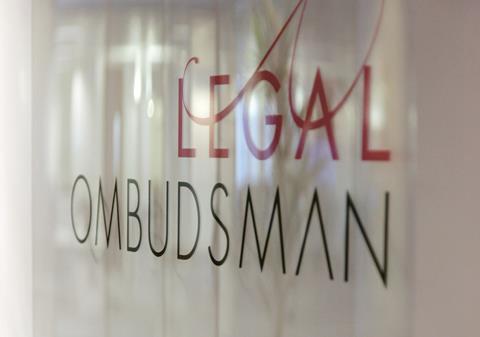Consumers must never be surprised by the deductions from their damages to pay lawyers’ costs, the legal ombudsman has said.
The complaints handler this week waded into the long-running dispute over conditional fee agreements and particularly whether consumers can object to paying shortfalls on law firms’ costs.
In new guidance, the ombudsman is careful not to say that deductions are inherently poor practice, but does say that the basis of any charges need to be both reasonable and properly explained to the client.
‘Where a lawyer intends to charge a success fee that is calculated based on risk, the reasoning behind this calculation should be provided to the client,’ states the guidance. ‘If not, we might decide that the client is not getting the information they should about how their costs are generated.’
If the ombudsman investigates a complaint about this issue, lawyers will need to justify the arrangement in the context of providing a reasonable standard of service.
In terms of time limits, the guidance says that even if a consumer has seen their bill, this does not mean they would know something is unfair. The ombudsman’s view is that a consumer’s date of awareness is likely to be the date they received advice from a law firm looking to represent them that they could make a complaint about a success fee.
Read more
Introducing the guidance, chief ombudsman Paul McFadden acknowledged that some solicitors are ‘frustrated’ by the actions of a small number of firms who look to reclaim legal fees on consumers’ behalf.
‘Firms representing consumers must act in a professional and constructive way, in line with their regulators’ expectations,’ added McFadden.

‘They need to make sure they’re not wasting everyone’s time – and are only pursuing complaints where it’s likely a consumer has unfairly lost out. However, solicitors receiving requests for information, and any related complaints, also need to respond constructively.’
The ombudsman suggests that a consumer is ‘entitled’ to see a bill and that if they have not received one and the solicitor won’t provide it, that would be grounds for complaint. Similarly, if a consumer has misplaced the original bill, the ombudsman says solicitors should meet a ‘reasonable request’ for a copy – albeit with the consumer paying towards the costs of producing this.
Around one in every ten complaints referred to LeO centre on the amount consumers have been asked to pay legal providers. Unhappiness with costs also features in many more complaints – in particular, those about service providers’ standard of communication.
Several cases have come before the civil courts in recent years where former clients have sought to reclaim deductions that had been made from their damages. The most high-profile was the Belsner case which was a dispute about the way solicitors charged their client for bringing low-value road traffic accident claims. Judges in the Court of Appeal ruled that the firm had made fair and reasonable deductions from their client’s damages. The deductions were therefore lawful and did not need to be paid back.
This article is now closed for comment.





























15 Readers' comments